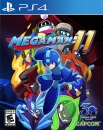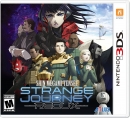Wman1996 on 16 August 2024
It's complicated.
Here's an excerpt from the making of the Nintendo GameCube
"Miyamoto spoke on the challenges of Nintendo 64 development and the transition from 2D to 3D game development. He believed that the struggles some third parties faced during the N64 era were necessary because it forced weaker developers out of the industry and made the remaining developers much stronger.
“It was hard to develop for the Nintendo 64, especially because the software libraries were delayed. However, the Nintendo 64 truly brought developers into the era of 3D, and there were bound to be problems with that,” says Miyamoto. ” I suppose developers who have been working with pseudo-3D on the PlayStation, are now finding themselves playing catch-up working in real 3D on the PlayStation 2. In that sense, I think the PlayStation 2 is even harder to develop for than the Nintendo 64. Nintendo 64 weeded out weaker developers at an early stage. In the long term, I think that was necessary. Almost a rite of passage.”
“Nintendo’s position is that we are going to sell our hardware with our own software titles, and if consumers buy a number of Gamecubes, then licensees would become interesting in making games for Nintendo Gamecube. That’s the general idea in Nintendo’s business. So we are not actually approaching them [third parties] and asking them to make software for Nintendo. Already there are a number of requests [from publishers] who would like to make the software for Gamecube, so probably in September we will start explaining the technology and delivering the development kits to them. Once again, it’s their decision. If they would like to make Gamecube software, that’s fine, but we will never demand them to make games for Gamecube.”
I find it interesting that Miyamoto says PS2 is probably harder to develop for than N64. And while that may have been true (somebody correct me if it wasn't), PS2 had more economical software prices and storage thanks to its DVD (like the PS1's CD over the N64 cartridge) and developers and publishers couldn't get enough of PS2. Tough to develop for is not synonymous with a lack of games. PS3 was tough to develop for but once it got older and Slim, the games came in big numbers (at least thanks to digital distribution).
Nintendo makes their hardware with their own software in mind, and that hasn't changed on Switch. However, we do see a willingness with Switch to listen to devs and publishers in the development process. As you mentioned, Nintendo was going to ship Switch with a measly 2 GB RAM, but Capcom helped convince them otherwise.
Sony and Microsoft usually make their consoles with all manners of publishers in mind, Nintendo usually looks inward.
Lifetime Sales Predictions
Switch: 161 million (was 73 million, then 96 million, then 113 million, then 125 million, then 144 million, then 151 million, then 156 million)
PS5: 122 million (was 105 million, then 115 million) Xbox Series X/S: 38 million (was 60 million, then 67 million, then 57 million. then 48 million. then 40 million)
Switch 2: 120 million (was 116 million)
PS4: 120 mil (was 100 then 130 million, then 122 million) Xbox One: 51 mil (was 50 then 55 mil)
3DS: 75.5 mil (was 73, then 77 million)
"Let go your earthly tether, enter the void, empty and become wind." - Guru Laghima

 The NINTENDO PACT 2015[2016 Vgchartz Wii U Achievement League! - Sign up now! My T.E.C.H'aracter
The NINTENDO PACT 2015[2016 Vgchartz Wii U Achievement League! - Sign up now! My T.E.C.H'aracter



































































